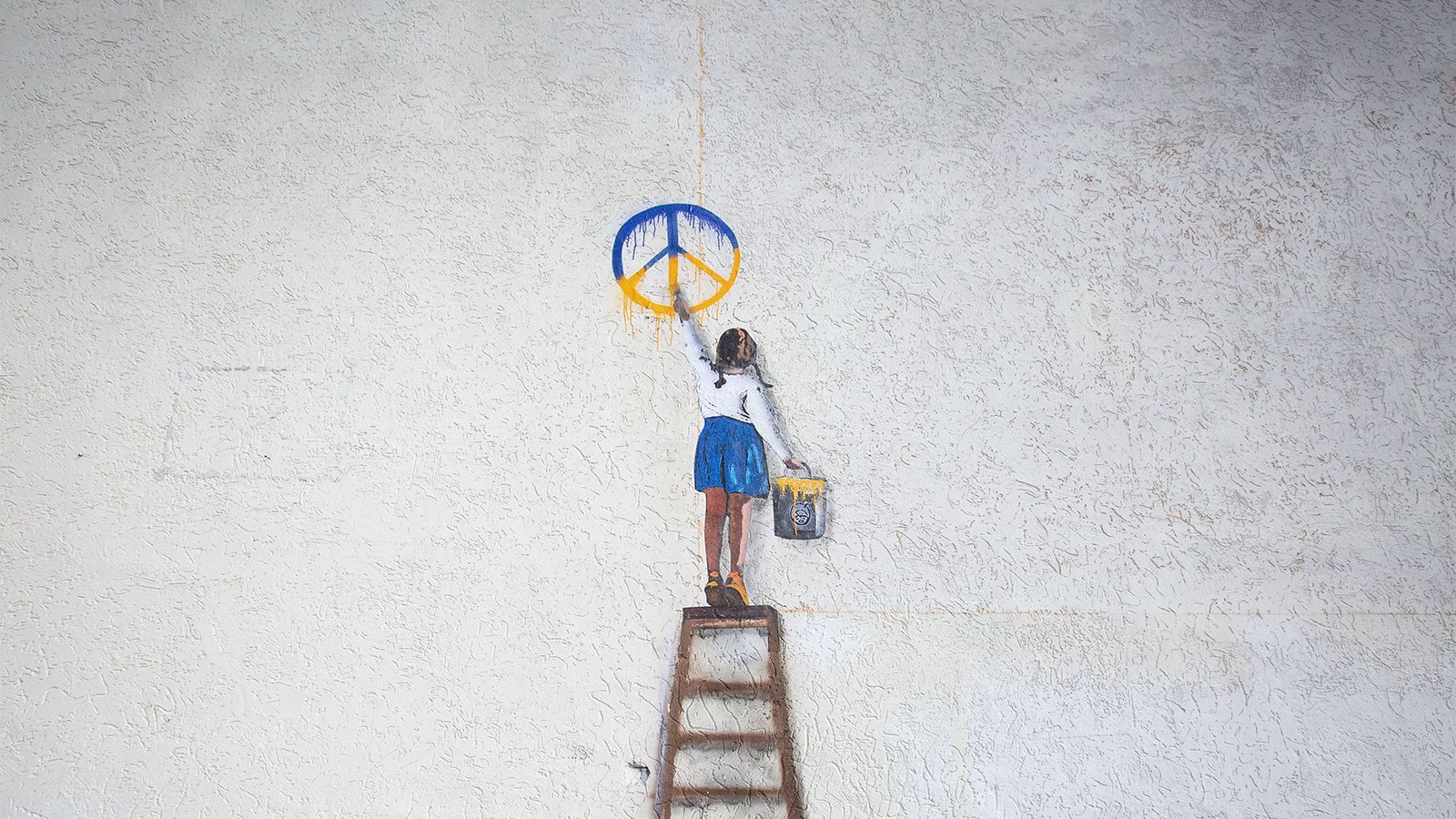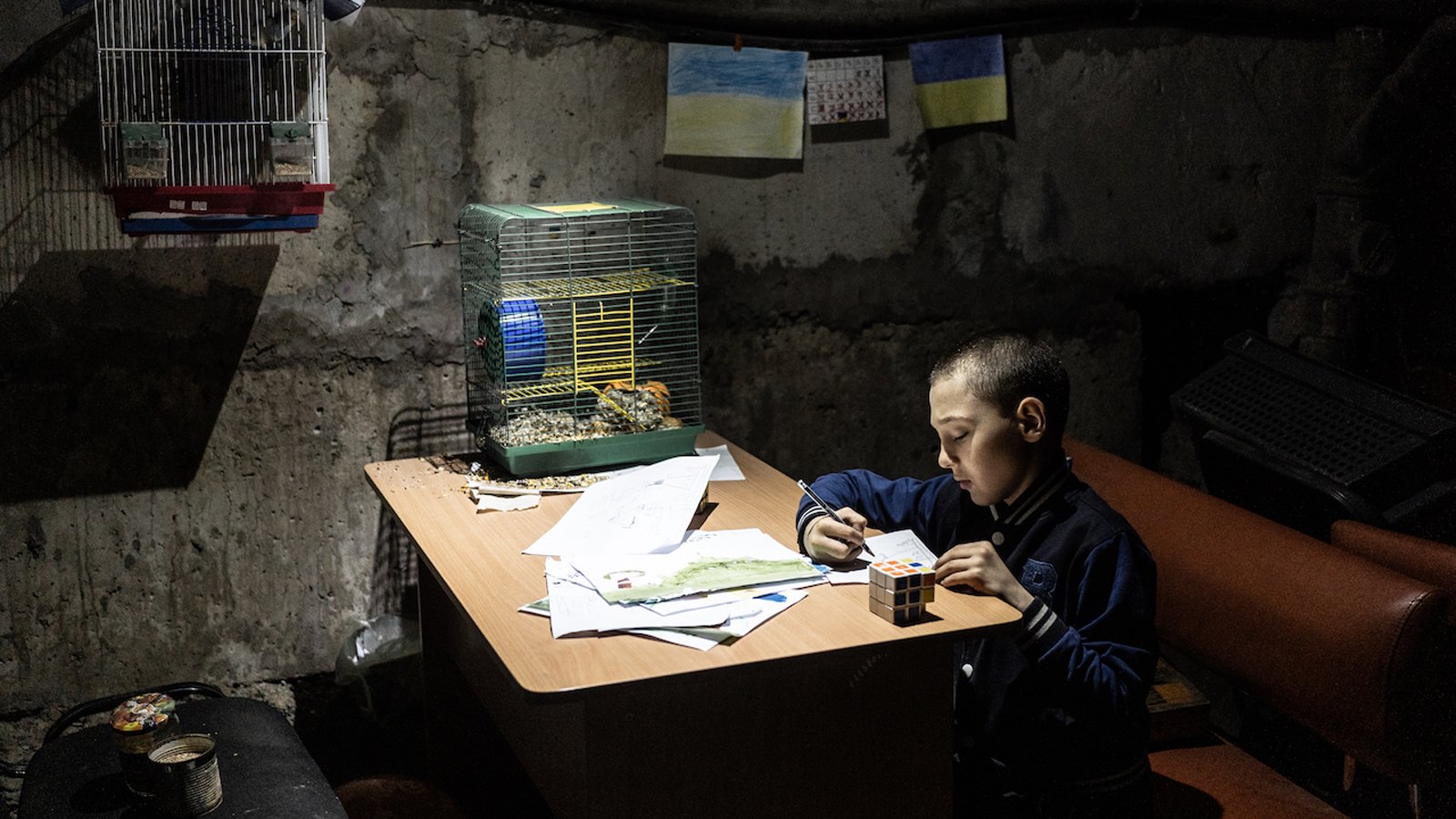Accountability, justice and “winning the peace” in Ukraine
The Ukrainian people are in the 20th month of their extraordinary resistance against the full-scale Russian invasion and an occupation that had begun eight years before. But the damage incurred on many levels is almost incalculable. How can we support Ukraine not just in their resistance but also in preparing for "winning the peace"? An op-ed by Andrew Gilmour.
What appears to be a systematic pattern of war crimes and other effects of the fighting have led to the killing, wounding and torture of tens of thousands of fighters and civilians. 6.2 million Ukrainians had to flee their homes. Physical infrastructure and houses have been reduced to rubble, and the environment has been targeted too. The blowing up of the Kakhovka Dam and the flooding of vast swathes of land is one example of what may be termed ‘ecocide’, which will have ecological, agricultural, and economic effects for years to come.
What is often ignored in most coverage, however, is long-term damage in other areas. The repercussions of the war – including trauma, displacement, and environmental degradation – are likely to cast a shadow over the nation for years to come. How can we support Ukraine not just in their resistance but also in preparing for "winning the peace"?
Collecting evidence of war crimes and ecocide
On 30 October 2023, generously hosted by the Robert Bosch Stiftung in Berlin, the Berghof Foundation will be convening, in partnership with The Reckoning Project, a major event on war crimes, accountability and justice in Ukraine. Topics will include the systematic gathering of admissible evidence of war crimes – the first time in history that such an attempt has been launched even while the war is still raging, an activity where the Reckoning Project has carried out remarkable work.
Another topic of that day will be nuclear and environmental crimes, connected to growing calls for “ecocide” to be recognised as an international crime. Strengthening international frameworks for environmental protection during armed conflicts and holding accountable those responsible for wilfully destroying the environment are necessary steps towards ensuring sustainable peace.
Dealing with trauma
So is promoting social cohesion. Communities have been shattered, families torn apart, and individuals left traumatised by the violence and insecurity they have experienced. While the invasion has led to impressive solidarity and unity among Ukrainians and fast-tracked the formation of a Ukrainian civic national identity, social fault lines are emerging below the surface as always happens in wars, due to varied wartime experiences.
Building unity and trust among different groups within society is a crucial part of rebuilding a nation that has been subjected to such collective trauma. This can be achieved through community-based initiatives, promoting dialogue among various groups, and supporting civil society organisations. But it will also need the involvement of political leaders at the national level.
Drawing from experiences in post-war contexts, it is evident that transition periods create fertile ground for intense political contestation and polarisation – especially when millions of refugees return from abroad. In such circumstances, the political leadership needs to act decisively to set the course for their country’s future, especially with regard to institutional, educational and economic reforms.
Moreover, addressing the violence and atrocities experienced during the war – including the frequent Russian use of civilian targets, not to mention the widespread use of torture – is essential for healing and reconciliation. As the event on the 30 October will highlight, digital technologies have opened up new possibilities for documenting war crimes and gathering evidence. From satellite imagery to social media monitoring, these tools can help corroborate testimonies, provide a more comprehensive understanding of events, and contribute to building robust cases for accountability.
What happens after the war
Healing the wounds of war goes beyond holding individuals accountable for crimes committed. Non-judicial means of transitional justice involve truth-seeking, preserving historical memory of the war, reparations, providing psychosocial support to survivors, as well as promoting initiatives that encourage dialogue.
By working together to address these challenges – from accountability to social cohesion to environmental destruction –, the international community can help Ukraine “win the peace” and try to ensure that its path to recovery is sustainable, harmonious, and as consensual as possible. After the massive and wide-ranging efforts that will be required by the Ukrainian people to regain their occupied lands, it is hard to conclude that they deserve anything less.


